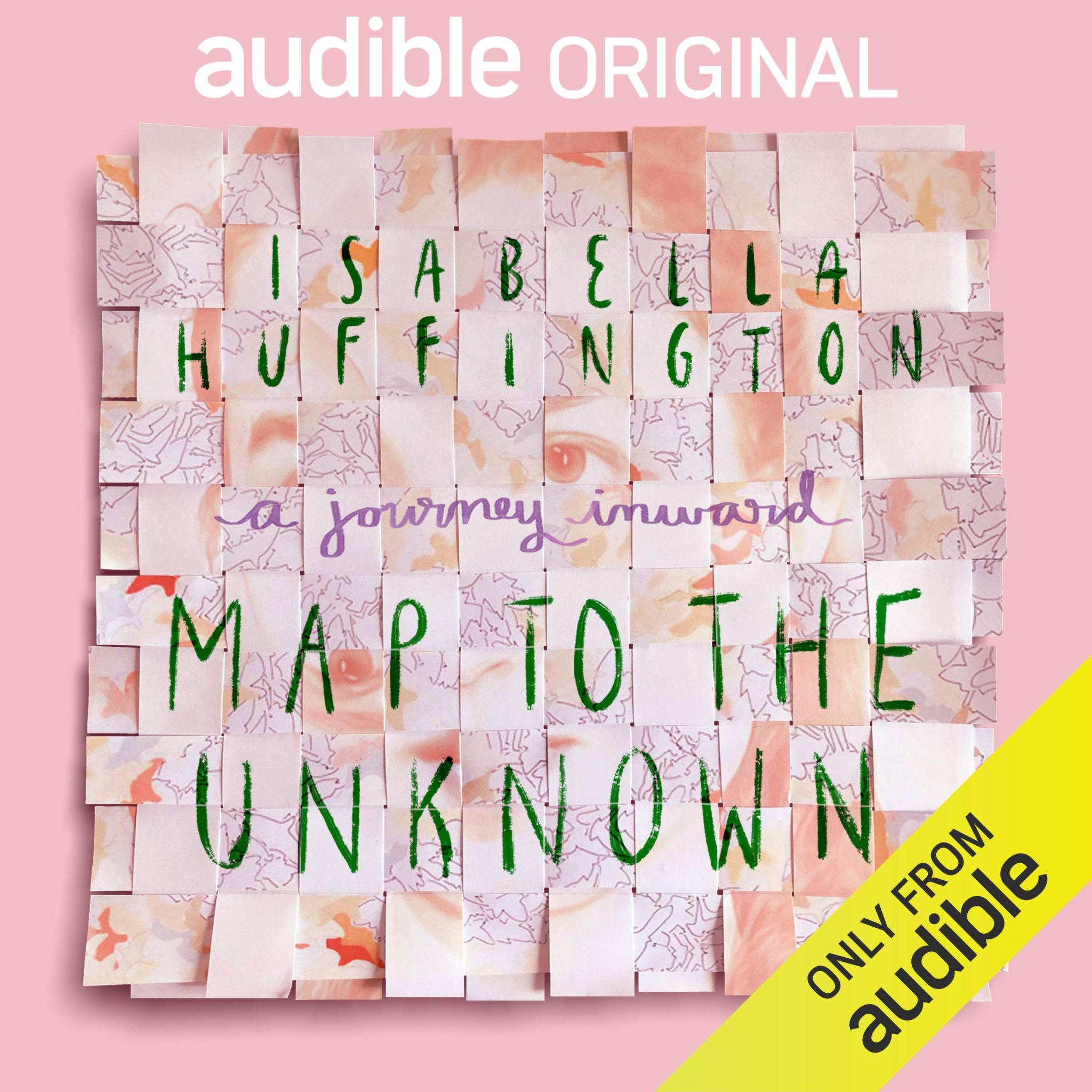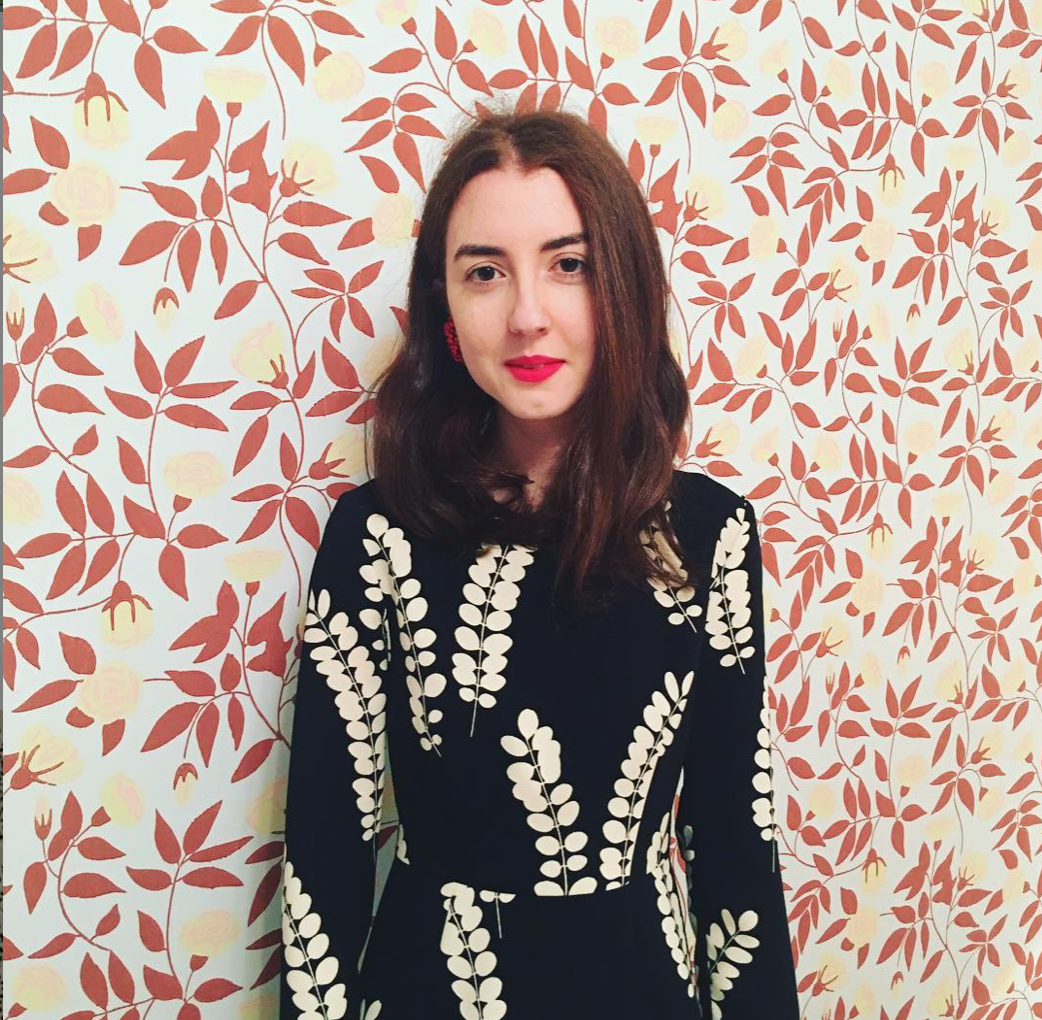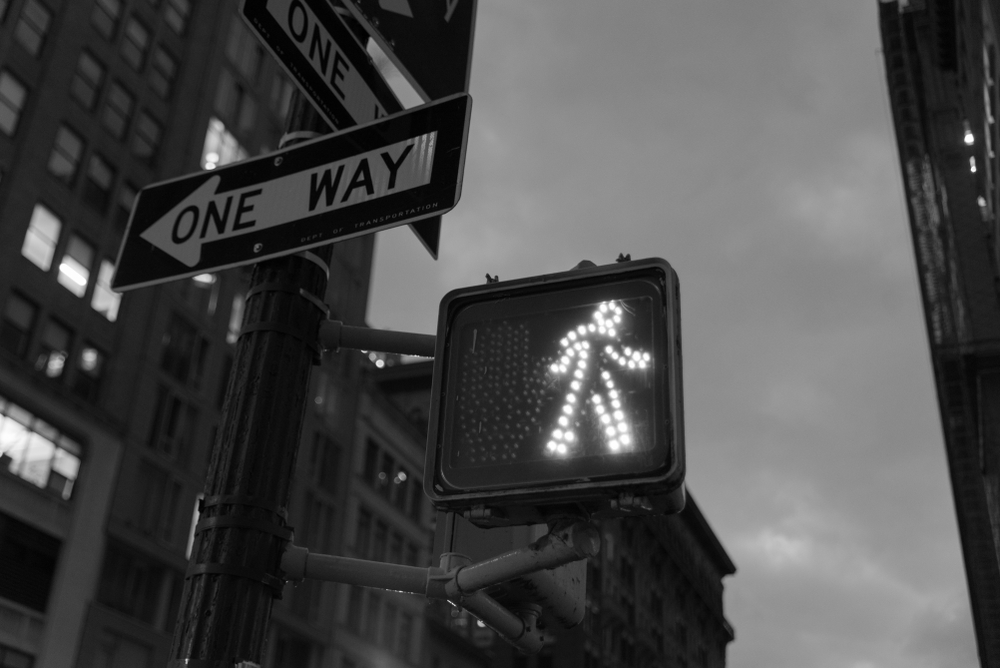I leave my apartment in a rush. My dad is always early. My mom is always late. But I like to be exactly on time. And here’s where I make my first mistake. Things weren’t perfect before this mistake; they were precarious at best. But it’s this mistake that leads to the unraveling. I don’t walk to the crosswalk. Why? I don’t want to waste forty-five seconds. I’ve been jaywalking from the same spot every day for the last year I’ve lived here. I don’t take Title 34, Section 4-04, Subsection (c) of the New York City Administrative Code all that seriously. I’ve jaywalked so many times on 11th Street that it no longer feels like jaywalking. It feels like I’ve created a new crosswalk—my very own invisible passage—in the middle of the street.
Both sides of the street are lined with cars parked bumper to bumper, the kind of parking that makes me wonder how anyone will get out without scraping the car in front or behind. The street is full of laughing, jostling NYU students with backpacks so heavy they walk at an angle and young parents holding wiggling toddlers and pushing empty strollers.
It’s spring in Greenwich Village, a magical three-week period when it’s no longer too cold and it’s not yet too hot. We emerge from our apartments after having spent the long New York winter in hibernation, moving quickly to and fro, heads bowed down, breath coming out in white puffs of condensation. Every spring I wonder the same thing: where did all these extra people come from?
The wind blows my hair into my mouth. I try tucking the long strands behind my ears, but it’s a losing battle. Finally, I tie my hair back into a sloppy bun. I should have worn a warmer coat. But it’s the first day of spring and I’m sick of wearing my parka.
There are two churches on my street. The first church has a sign that says, “Refugees and immigrants are welcome here” and a rainbow pride flag. The second church is always under construction. My dad is religious. He was raised Presbyterian in Texas, but he converted and became Greek Orthodox when he married my mom. He took me to one of the churches with him the week I moved in. The sermon that day was on the sacrifice of Isaac. It’s my least favorite parable in the Bible. It makes God sound as kind and sane as Mel Gibson. Maybe I simply don’t understand it. Maybe I’m taking it too literally. But I’ve never been particularly comfortable with mystery or metaphor. I promised my dad I’d go to the other church the following Sunday, but I never did. “It’s just one hour, one day a week, Isabella.” But it’s hard forming a new habit, especially at eleven a.m. on a Sunday morning.
I look left. Nothing. I step off the sidewalk. I hear a shout: “Watch out!” I look right, and—BAM—a bike plows into me. I didn’t see it coming, although to be fair, I didn’t look right. It is, after all, a one-way street.
The bike knocks me off my feet. I feel weightless as my head slams into the pavement with an audible thump. I’ve spent most of my life trying to control my body, but I suddenly have no control over it as it flies backward. I feel my neck snap back. “Whiplash,” a doctor tells me later. The left side of my head takes the brunt of the fall. I reach back with my hand and touch a thick liquid that must be blood. I wipe my hand on my pink pants, careful to avoid dirtying my sister’s blue jacket. I hear loud voices of concern. People are shouting. The noise makes my head hurt. I keep my eyes closed and wish they would stop talking. I don’t get up; I can’t get up. What the hell just happened?
I know I need to get up. I certainly can’t lie in the middle of 11th Street forever. But I’m not sure I can move. So I lie there. I open my eyes and stare up at the sky—baby blue and totally cloudless. I wish there were clouds. It might justify lying on the ground and making animal shapes out of the white puffs and tendrils floating by. Okay, get up. You need to get up. Instead, I close my eyes and try to pretend this isn’t happening.
Later as I look back at this moment, I realize how much of life only makes sense in the retelling and reexamining: Maybe because it’s so hard to make sense of something as it’s happening. Or maybe because when we rush to make meaning out of something that seems entirely senseless, we’re prone to miss the real meaning entirely. We try so hard to forget how completely uncertain life is and so when something utterly unexpected happens, instead of acknowledging that we’re not in control after all, we cling to the pretense that nothing big has happened. And that’s exactly what I did. I refused to acknowledge that something had gone horribly wrong. As if by refusing to acknowledge it, I could will it away.

Excerpted from Map to the Unknown: A Journey Inward by Isabella Huffington. ©2020 Audible Originals.


